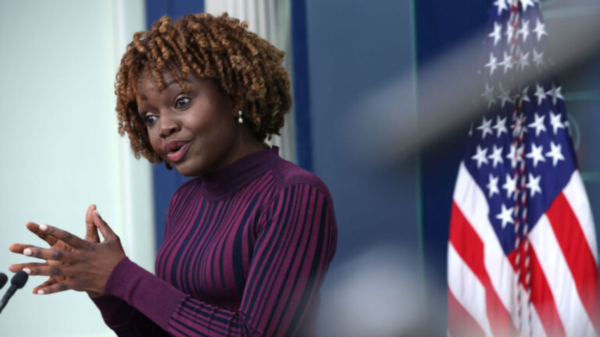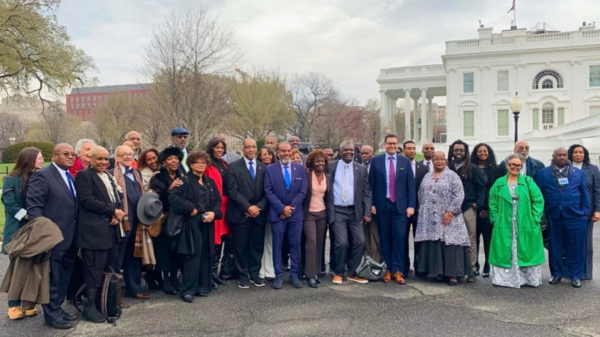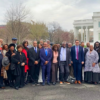BY GARRY PIERRE-PIERRE
The Haitian Times
www.haitiantimes.com

I was at the National Association of Black Journalists convention in Detroit in 1992, desperately looking for a job in the northeast to be closer to my mother, who had been diagnosed with breast cancer. I had applied for reporter jobs at the Boston Globe and the now-defunct New York Newsday. Both dutifully turned me down.
By the time I went to the convention, I was ready to move without a job. I couldn’t stand South Florida’s blatant racism and, despite Haiti being a front-page story, I wanted out. I was chatting with a colleague inside the cavernous job fair when I looked up and saw a black banner with white letters emblazoned: The New York Times.
Thinking I had nothing to lose, I sat down and handed the person at the booth my resume and clips. That person, the late Gerald Boyd, surprised me because he was reading my clips, a rarity during these dog and pony shows that these jobs fair tend to be.
After about five minutes, Gerald looked at me and asked, “How did you learn how to write so well?”
Dumbfounded because no one had ever said I was a good writer, I replied quickly, “I read a lot and I have good editors.”
“How would you like to work for better editors,” he replied.
I would become the first Haitian-born reporter at the New York Times and was quickly embraced by the Haitian community in New York. I became a sort of role model, which made me uncomfortable. But that comes with being at a place as august as The New York Times.
During my time there, I had my share of both internal battles with editors and external fights with some community leaders who mistakenly thought that part of my job was to promote them in the pages of the then Gray Lady. I remembered these scars recently when the Haitian migrant crisis thrust a younger generation of Haitian trailblazers into the spotlight.
As president Joe Biden began deporting thousands of asylum seekers back to Haiti, Haitians took to social media to denounce the move. Many targeted Karen Andre, a White House aide, and Karine Jean-Pierre, deputy press secretary. People reasoned that their proximity to power is akin to having power.
I know both of these ladies and I imagine they’re not happy with the policy and have made their positions well known to whomever needs to know. But any public pronouncement would be ill-advised, and they know it. They have a job to do, and they do it. Unlike Daniel Foote, Biden’s special envoy to Haiti, these ladies did not resign in protest, nor should they. He has his own reasons for doing so.
Furthermore, we don’t know what these women said and if they protested. We just assume that they agree with the policy since they didn’t denounce it. This also raises another issue for me because we Haitians think that just because a person is “Haitian,” they have to stick their neck out for Haiti or the community, no matter the personal sacrifice.
It’s not realistic and most of the time, such a move is counterproductive. And frankly these two ladies have mid to low level influence with the president. Jean-Pierre is a spokesperson and not a policy advisor for Haiti and she’s not well versed on those issues to take a career ending stand. Andre, the daughter of legendary singer Farah Juste, also doesn’t work on Haiti policy.
It is like asking me to resign over The Times’ coverage of the Palestinian story because I can relate to their mistreatment by the Israeli government. Not going to do it.
I did leave the New York Times, as I knew I would eventually when I started working there on a cold January day in 1993, the week before Bill Clinton was inaugurated as the 42nd president of the United States.
I always felt a debt of gratitude to the Haitian community. Despite their lack of sophistication and savvy, they managed to pull off one of the largest protests in the city’s history in 1990, snarling traffic on the Brooklyn Bridge, disrupting Wall Street.
That march paved the way for my being at the New York Times at the tender age of 30. Soon after I began working there, a few younger colleagues told me that that march spurred an emergency meeting with the metro staff.
Editors were incensed that they didn’t know about this community. How were they able to organize such a huge event under the radar? Something was amiss and the Times decided that it should never miss such a story ever again.
This is why Gerald was reading my clips and asking whether or not I really spoke the Creole and French that were listed on my resume as language skills. I’m an outlier and I don’t begrudge anyone who has the opportunity to throw it all away for some nebulous principle.
There are, currently and in the past, people in positions to help Haiti or the Haitian community who have done precious little for the cause when they clearly had the power. Some of them find their faux radicalism and speak out long after they no longer have any real access to the power brokers.
In many ways, this dilemma is yet another crossroads that new Americans have faced as they chart their station in this complex and complicated country that is the United States of America. Immigrants — from the Irish to the Chinese to Eastern Europeans — have faced such a conundrum and addressed it differently.
As Haitians, we need to learn that we are a relatively young group of Americans who need not cannibalize ourselves in our rush to force the American government to make policy decisions. Let’s remember that we’re in this predicament because Haiti’s leaders have failed to live up to promises they made to their people.
Since I left the New York Times, there have been a few other Haitian American reporters, but their focus has not been Haiti. They’ve covered South Africa, politics, culture and other beats. I did the Haitian thing, so they didn’t have to feel compelled to write about Haiti as I did and continue to do. That’s progress and I’m pleased with it.









You must be logged in to post a comment Login